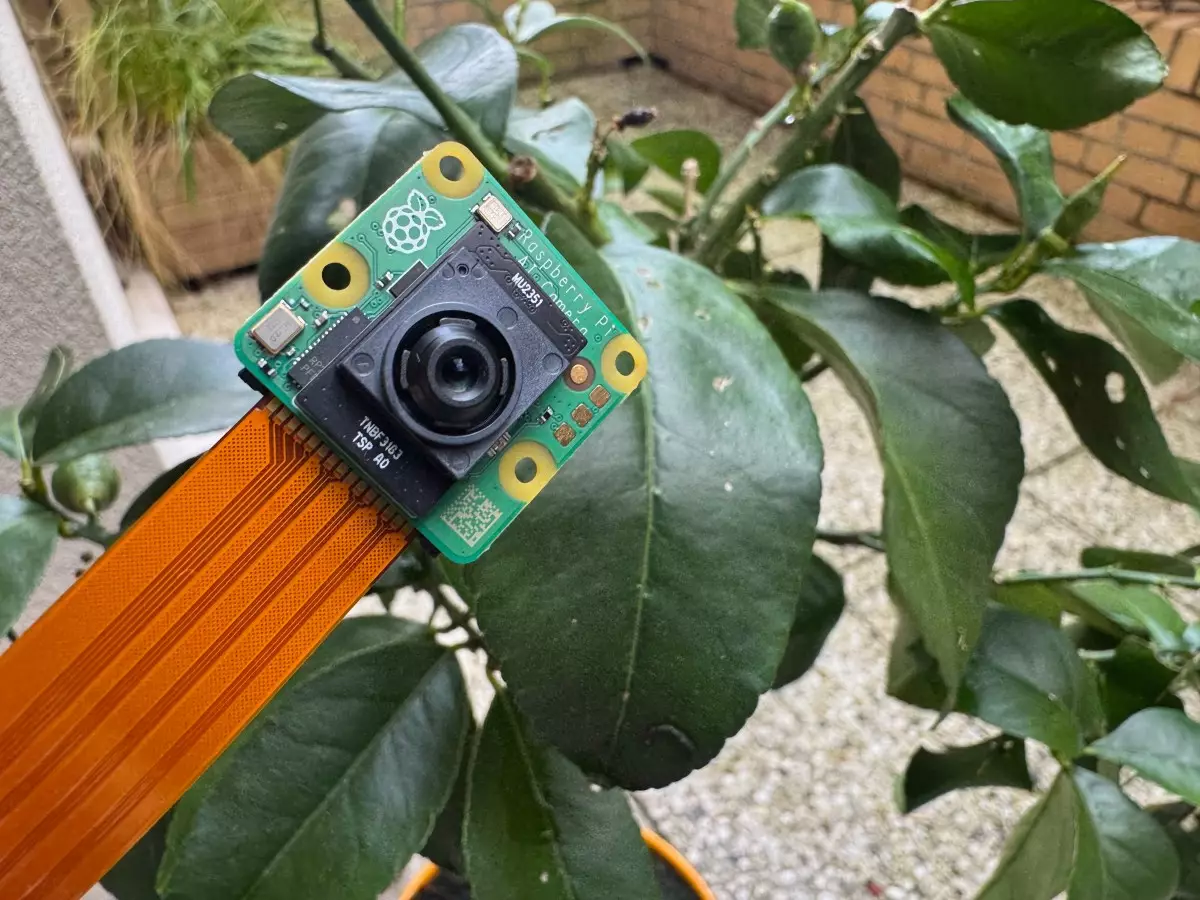The technological landscape continues to shift at a breakneck pace, and Raspberry Pi, a name synonymous with compact computing, is fortifying its presence in the realm of artificial intelligence (AI). With the recent launch of the Raspberry Pi AI Camera, the company is not merely releasing another product; it is paving the way for innovative applications across various industries. Priced at an accessible $70, this device introduces on-board AI processing capabilities, representing a leap forward in functionality for Raspberry Pi’s impressive lineup of single-board computers.
Technological Foundations
At the heart of the Raspberry Pi AI Camera lies the Sony IMX500 image sensor, paired with the RP2040 microcontroller — a powerful combination that adheres to Raspberry Pi’s longstanding ethos of delivering affordable yet efficient technology. This synergy allows users to perform image capture and processing with commonly utilized neural network models without massively increasing the cost of deployment. Unlike heavyweights in the AI hardware realm, like Nvidia’s GPUs, the RP2040 chip is not intended to dominate the inference space but functions effectively as a companion in simpler applications.
The design choice of incorporating on-board processing is particularly clever. With this feature, the primary Raspberry Pi unit can remain dedicated to alternate functions without getting bogged down by the potentially intensive task of image data processing. This efficient division of labor not only optimizes performance but also eliminates the need for additional accelerators, making the AI Camera an attractive option for businesses that rely on multitasking capabilities.
In contrast to the foundational Raspberry Pi Camera Module 3, which offers a basic 12-megapixel photo capability, the AI Camera enhances the user experience by allowing real-time object detection through the pre-loaded MobileNet-SSD model. Consumers can appreciate the size parity between the two models — both retaining the compact dimensions of 25mm x 24mm — but the AI Camera stands out with its slightly increased thickness, a necessary compromise for advanced optical components.
Despite the technical upgrades, prices remain competitive. The Raspberry Pi Camera Module 3 is marketed at around $25, making it ideal for hobbyists and experiments. However, the value proposition of the AI Camera positions it as a more sophisticated tool better suited for application in professional settings.
Target Market and Use Cases
The question inevitably arises: who stands to benefit from this innovative new product? While Raspberry Pi started as a platform largely embraced by enthusiasts and tech tinkerers, its evolution into a provider of robust solutions for businesses cannot be underestimated. A staggering 72% of sales stem from industrial and embedded applications as reported by Raspberry Pi after going public. The AI Camera is engineered with these segments in mind, facilitating the emergence of potential uses ranging from smart city infrastructure to efficient manufacturing processes.
For instance, municipal applications may involve monitoring empty parking spots or tracking traffic patterns in real-time, contributing to smarter urban planning. In industrial settings, one might envision the AI Camera employed in quality assurance roles, where it could automate the assessment of products moving past a sensor.
Such use cases highlight the adaptability and reliability that Raspberry Pi offers, especially in the wake of post-pandemic supply challenges. Businesses investing in Raspberry Pi products appreciate the assurance of reliable supply chains, reducing risks associated with production bottlenecks.
Raspberry Pi is committed to the AI Camera’s longevity in the market, promising production continuity until at least January 2028. This establishes credibility among industries that require sustainability and stability in sourcing essential components for their operations. As organizations increasingly look toward AI to drive efficiency, devices like the Raspberry Pi AI Camera show that advanced technology doesn’t have to come with premium price tags.
The Raspberry Pi AI Camera is more than just a new product; it is a gateway to revolutionary applications in both the consumer and industrial sectors. By marrying affordability with advanced AI processing capabilities, Raspberry Pi positions itself as a leader in accessible technological solutions, ensuring that creativity and innovation remain within reach for all users.

